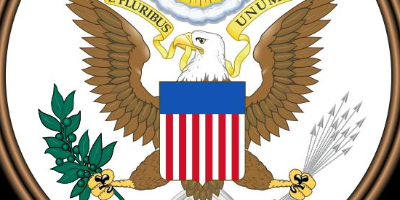dec 15, 1791 - Bill of Rights
Description:
The first ten amendments to the Constitution were ratified. It included the following:First Amendment: Protects individual freedom of speech, the press, religion, assembly, and petition, as well as separating church from state. It was added in order to protect the rights the Founding Fathers believed to be necessary to a functioning society.
Second Amendment: Protects individual right to possess and bear firearms. It was added so that the US could keep a state-regulated militia as their main military force, instead of an organized army. It was important that the powers of the military were kept in the hands of the people, not the government.
Third Amendment: Protects against forced quartering of soldiers in civilian homes. While not used much today, it was important for civilians at the time. The 1774 Quartering Act left people feeling like their privacy was being invaded by the government. The Framers wanted to ensure that the federal government could not intimidate its people into submission or invade their privacy in this manner.
Fourth Amendment: Protects individual right against unreasonable search and seizure. It was added to ensure the government could not infringe on the people's right to privacy, provided they didn't have a good reason. However, if they could provide reason to suspect an individual of something that would warrant a search of their property, such as carrying illegal drugs or firearms, they could carry through with the procedure.
Fifth Amendment: Guarantees that the individual right to life, liberty, and property cannot be infringed without the due process of law. It was important to the Framers that people's rights be protected unless properly convicted.
Sixth Amendment: Guarantees right to fair and speedy public trial. These were important if the judicial system were to work properly.
Seventh Amendment: Guarantees right to trial by jury. This would ensure that convictions could not be made by a corrupt judge in the pocket of a corporation or the government. Instead, ordinary citizens that were randomly selected would administer the verdict, guaranteeing that there was no corruption.
Eighth Amendment: Protects individuals against cruel and unusual punishment, as well as excessive fines or bail. This was to ensure that punishments were fair, so that people could not be oppressed by the courts.
Ninth Amendment: Protects individual rights not specifically enumerated in the Constitution. This was added because not every right could be added to the Constitution, so the Founding Fathers decided to add an amendment giving people rights not not mentioned.
Tenth Amendment: Delegates all jurisdiction not explicitly stated in the Constitution to be under the federal government to be under state government. The Founding Fathers wanted the states to have a great degree of autonomy, so they were granted jurisdiction over most legislative matters. However, to ensure that the states were more unified than under the Articles of Confederation, the federal government was granted ultimate power in matters under their jurisdiction.
These were all added to satisfy the Anti-Federalists, a group of people afraid that the Constitution did not protect enough individual rights.
Added to timeline:
Date:
dec 15, 1791
Now
~ 234 years ago
